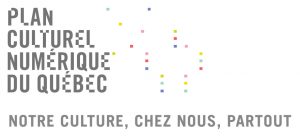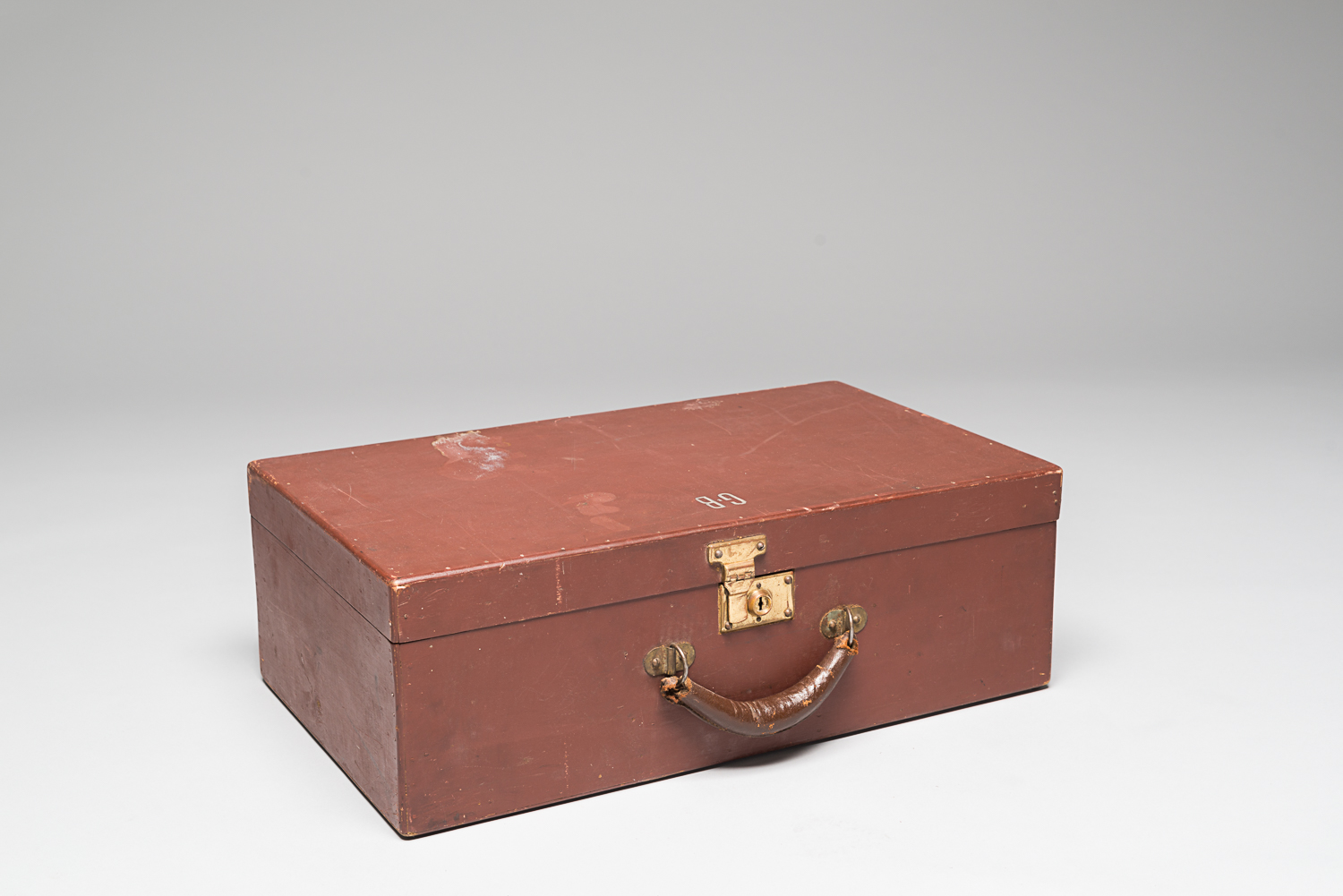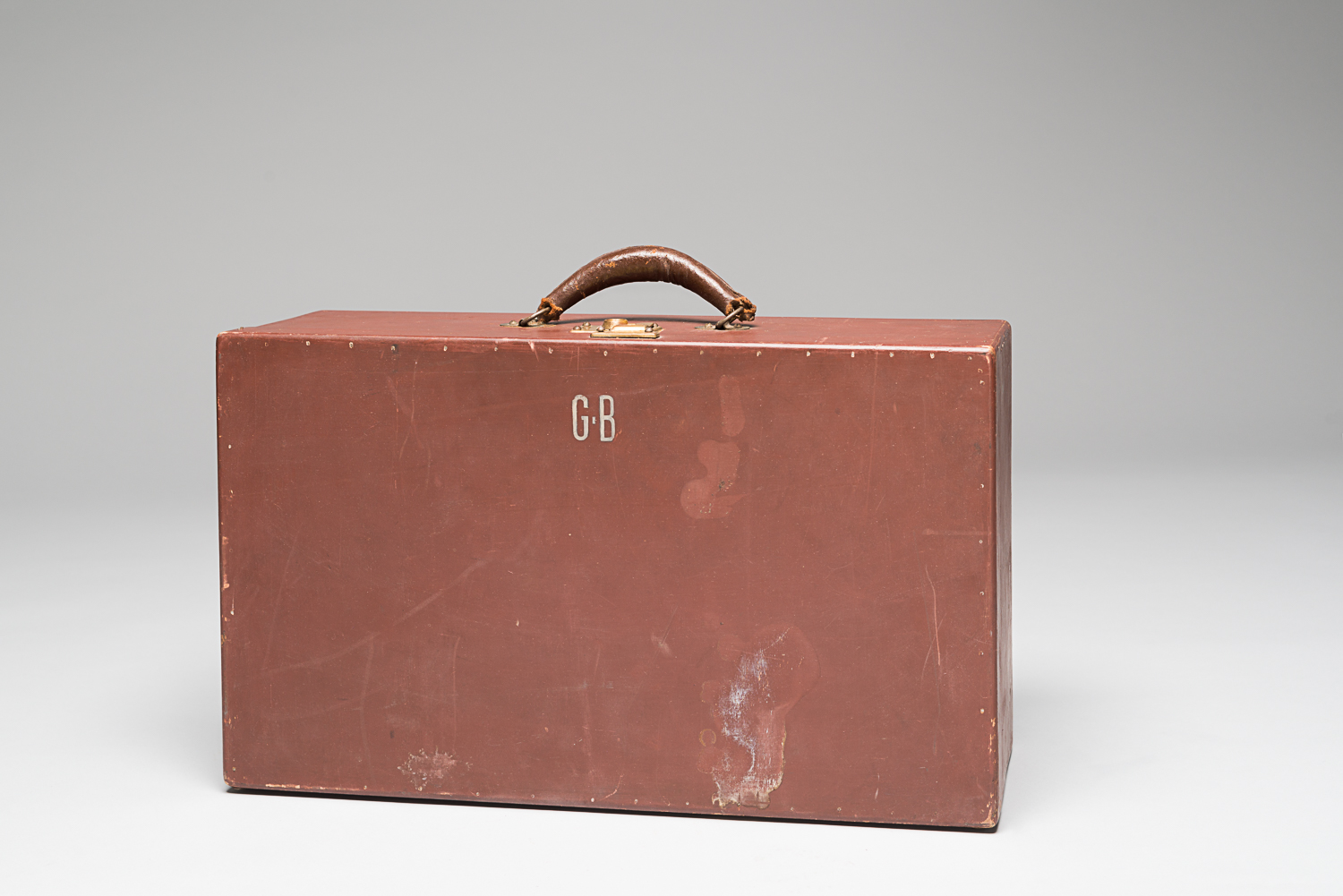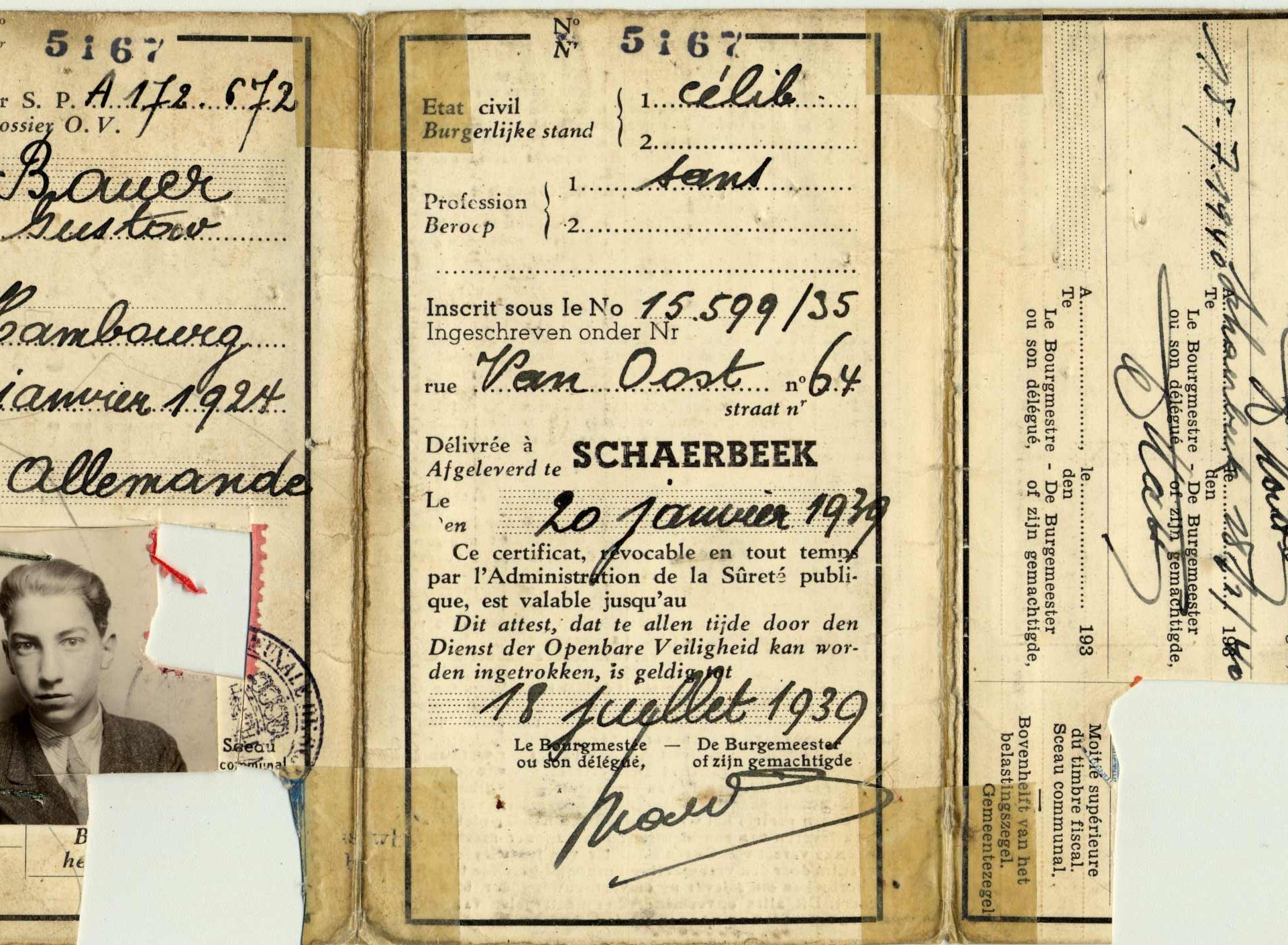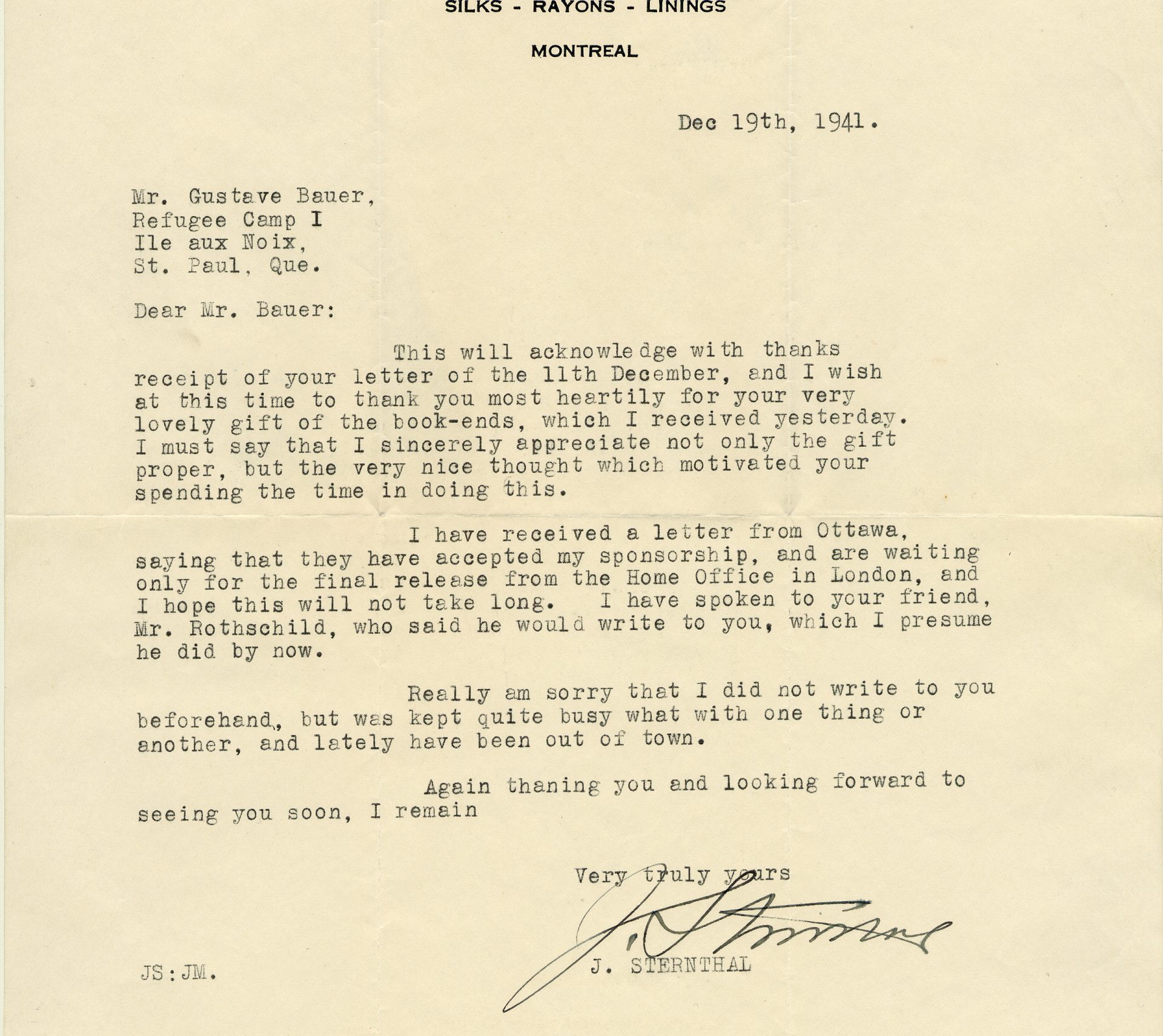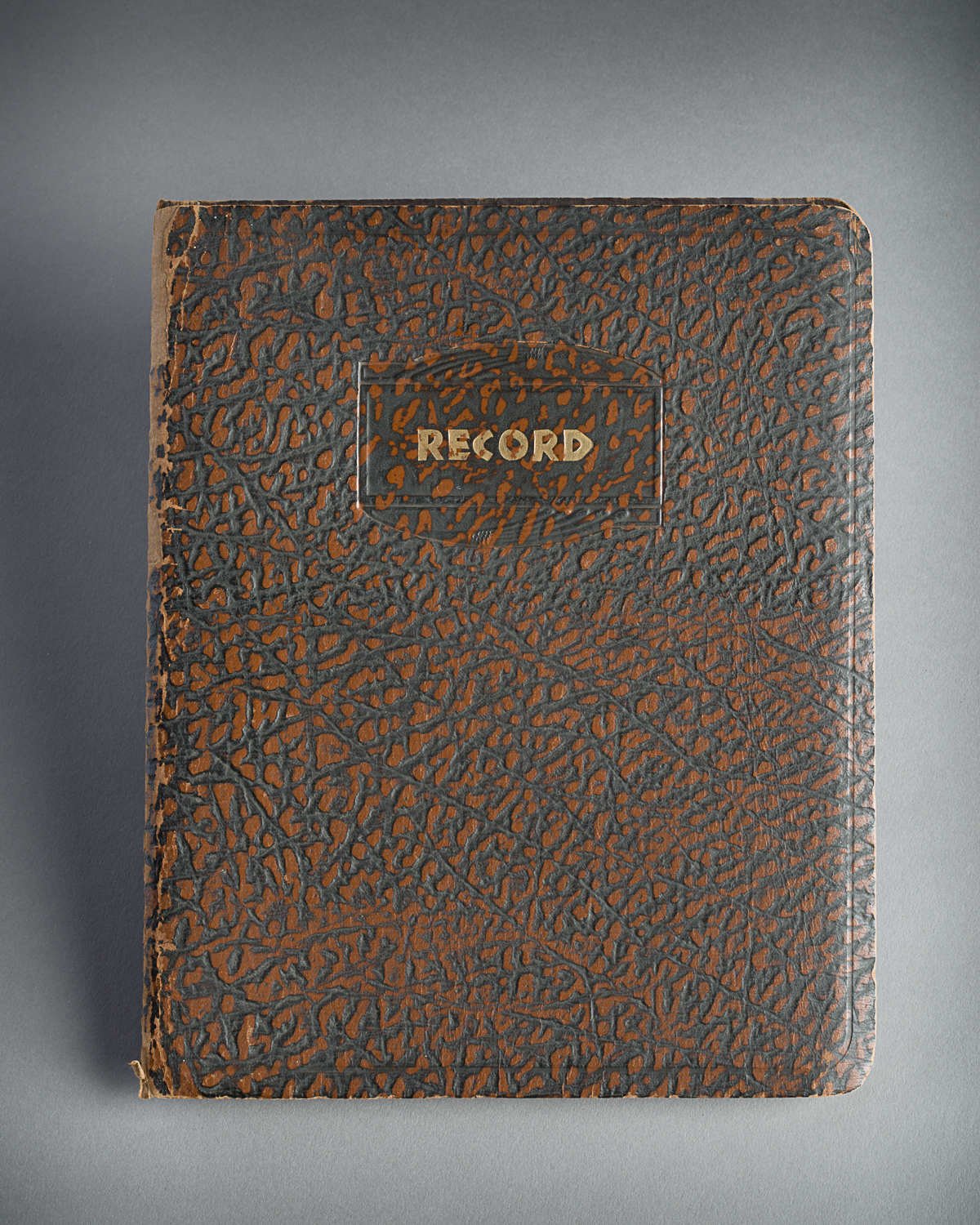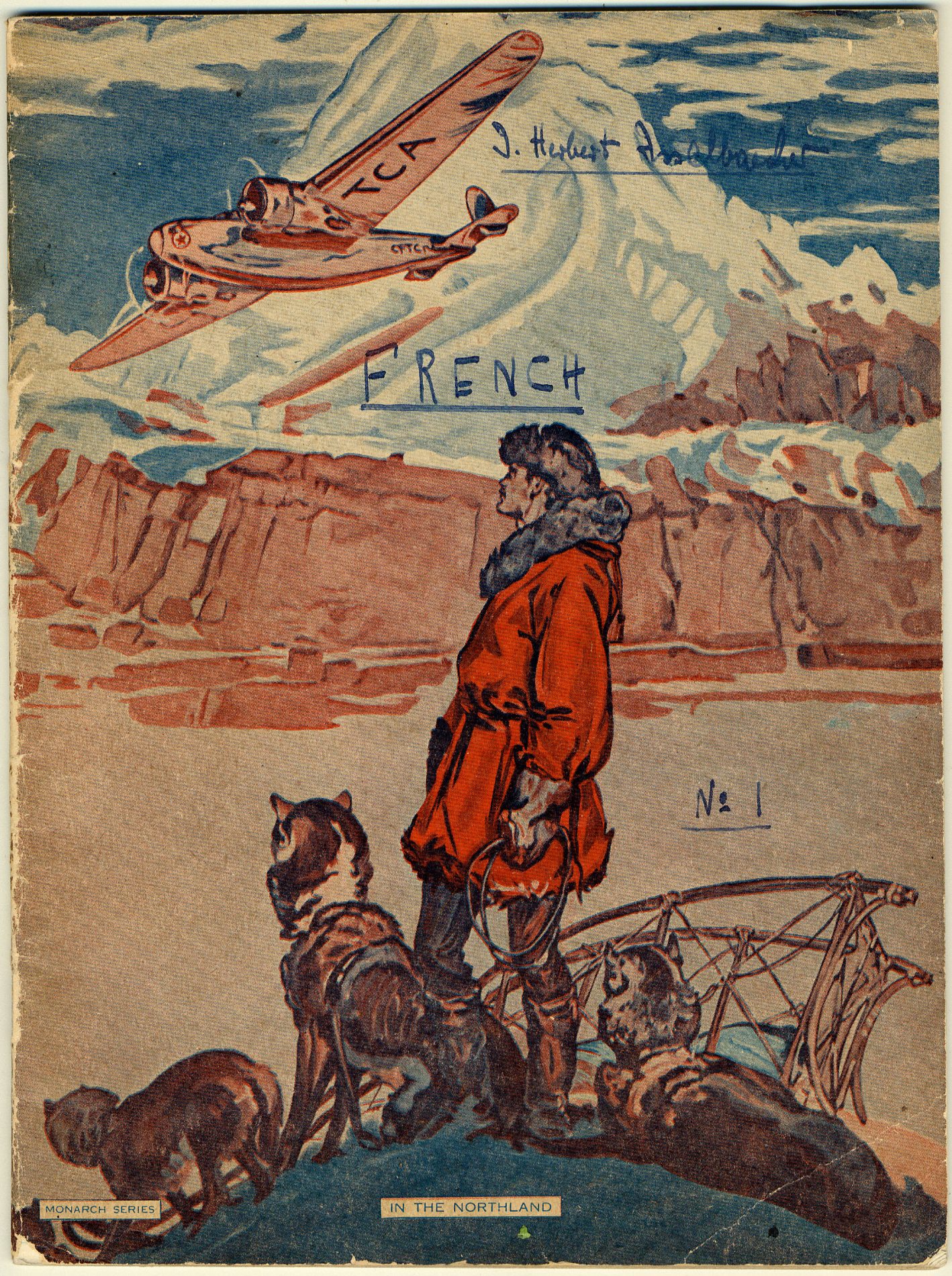This wooden suitcase has a gold lock and a leather holder. The initials G.B. are painted in silver on the top of the case. It was made between 1940 and 1941 by Gustav Bauer during his imprisonment in a Canadian internment camp.
The Bauer Family Escape
Gustav Bauer was a Jew born in Hamburg, Germany, in 1924. He was on vacation with his brother, Werner Bauer, and mother, Anne Bauer, in Fano, Denmark, when the Nuremberg Laws were adopted in 1935. Anne got word not to return to Germany and went instead to her sister, Sabina Wachter, in Belgium with the boys. Gustav’s father, Manfred Bauer, was able to help some of the wealthier Jewish families smuggle their money out of Germany by bribing ships’ captains and personnel.
However, Manfred was caught and sentenced to two years in prison. After two years of imprisonment, Manfred eventually found Anna and the boys in Belgium. In 1940, Manfred and Werner had to report themselves to the Belgian authorities and were sent to a camp in southern France.
Gustav Bauer’s Detention in a Canadian Internment Camp
When Gustav and his mother Anna tried to join Manfred and Werner in France, they were arrested and sent to Great Britain. Gustav was detained at Pentonville Prison, Kempton Park, and the Isle of Man as an “enemy alien” before being sent to Canada on July 4, 1940.
He was first detained at Camp T in Trois-Rivières, later transferred to Camp B in New Brunswick, and then sent back to Quebec to Camp I on Ile-aux-Noix. Gustav was liberated in 1942, and his mother joined him in Canada in 1947. His father was deported from Drancy to Majdanek in 1943. His brother, Werner, survived and came to Canada in 1948 for Gustav’s wedding.
Great Britain and Canada incarcerated German prisoners-of-war and civilians during World War II. Many Jewish refugees from Germany who had escaped Nazi persecution were also detained as “enemy aliens” in those camps.
Gustav’s wife, Eudice Bauer, donated this suitcase to the Montreal Holocaust Museum in 2004. Discover more artefacts related to internment camps in Canada here.
This project is part of the implementation of the Plan culturel numérique du Québec.